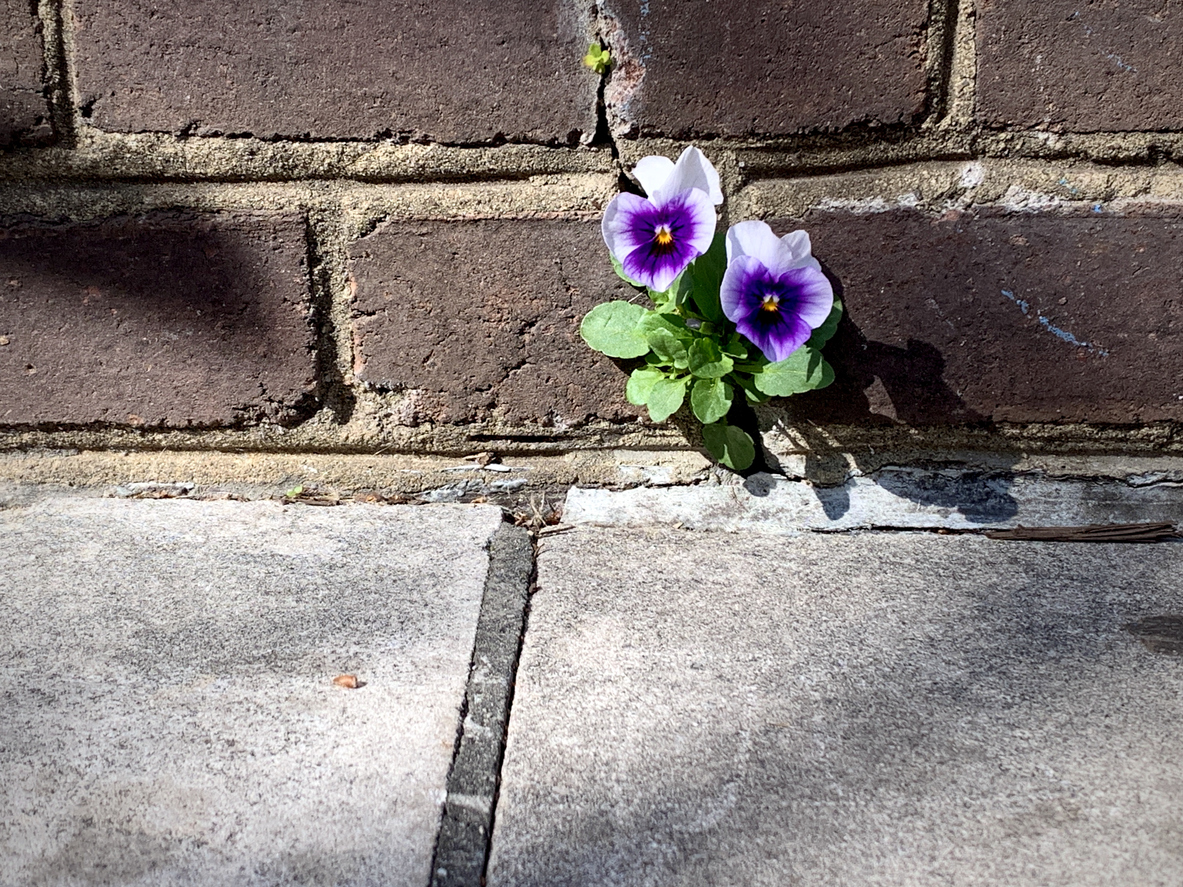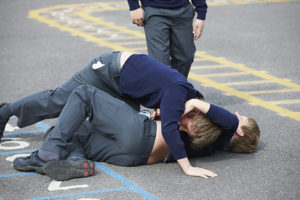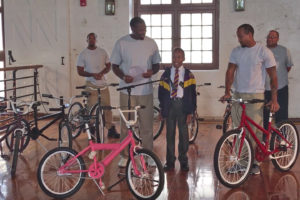My blindness — it might be my super power

I was that child who crafted mental stories when on roller skates, when tossing Barbies into the oak tree, and when leaping down the length of backyard landscaping beams like the Olympic gymnast I knew I would be. I was also that child who was diagnosed with a rare eye disease that would erase my vision little by little, who left home at age eleven to live at a residential school for the blind, and who became an anorexic perfectionist believing that if I achieved enough, somehow I wouldn’t feel as if my spirit were being annihilated. Then I survived. And, then I became a teacher.
What draws someone to the classroom and what keeps someone there are not always the same thing, but I am a believer that those two narratives are each stronger when allowed to be interwoven. As a blind English teacher in a public high school classroom, I became a teacher because of my story, and I remained a teacher because of my story. The unchecked imagination that characterized my childhood pulled me deeply into reading and writing, so it was natural that English became the beloved subject that I wanted to unlock for my students. Similarly, a degenerative eye disease, my disrupted family structure when I departed for the blind school in sixth grade, and mental trauma leading to an eating disorder made me intensely empathetic concerning how much my students were experiencing outside of school. I could no more keep my story from influencing my educator identity than my students could set down what was theirs from outside my classroom.
My students never once cared about my differences as much as some adults. For my students, I was the dramatic, silly, compassionate, word-loving dreamer who led rambunctious games of “Blind Pictionary,” who typed a full single-spaced page of feedback for each creative writing story, and who visited them in the hospital when they were ill. Not every adult who surrounded me embraced that storyline, including the mother who stood up during my first open house and told me her child should not have to be exposed to my blindness, and the colleague who said that I won my first teaching award because of the judges’ pity for my disability.
What if we educators inventoried our life experiences the way we gather professional achievements on a resume and owned those life events as valuable pieces of our story? Could we not be better at meeting the needs of our students if we deliberately reflected about where we’ve been? Wouldn’t some of the unhealed debris left over from our past start to feel less like pain and more like practice for lifting up our students? Isn’t it possible that we ourselves might be happier, healthier, and more whole?
Here is the formula I envision: “Because I experienced this, I remember what it is like to feel this, so when my students experience this, I can be the teacher who does this.” “This” acknowledges that our stories are neither linear nor one-dimensional. “This” acknowledges our power to make our stories have meaning. “This” acknowledges that the next chapter awaits.
I didn’t become a good teacher because I am blind. Instead, because I am blind, I became a teacher who understood fear, loss, and hope, and that understanding these things is good. I became the teacher who could tout the value of noticing things because I knew how noticing leads to witnessing miracles, such as the melting sherbet colors of a summer sunset: I can still write about that sunset now, years after seeing it, and my students can do the same. I became the teacher who helped name a future guide dog puppy with the last name of a student who was the aspiring Olympian (swimmer, not gymnast) I never actually was, so I proudly honored her hard work by meshing it with soft puppy fur and a lasting legacy. Those things are part of me, so it seems natural to make them part of my teaching.
I wouldn’t be the teacher I am if I weren’t blind: it’s part of my story. It might be my super power. It isn’t inspiring, though, not any more inspiring than the stories of any educators who use who they’ve been to inform who they can become for their students. I don’t think that is teaching differently: I think that is teaching authentically, and I know it matters.
—
Kathy Nimmer is the 2015 Indiana Teacher of the Year and a finalist for 2015 National Teacher of the Year. She received the Dollywood Foundation’s Chasing Rainbows award, the NFB’s Blind Educator of the Year Award, and the Hasbrook Award, a lifetime achievement honor sponsored by Bosma Industries. Among other previous honors, she was named Sagamore of the Wabash in 2014, the highest civilian honor in Indiana.
Through a Lilly Teacher Fellowship, Kathy wrote and published an anthology called Two Plus Four Equals One: Celebrating the Partnership of People with Disabilities and Their Assistance Dogs (2010). This followed a book of poetry called Minutes in the Dark, Eternity in the Light (2006). Kathy taught English at Harrison High School in West Lafayette for twenty-eight years and currently serves as the mentorship program leader for new educators in Tippecanoe School Corporation. She is also a frequent motivational speaker at local, state, and national events. Kathy earned her BA in English Education from Trinity Christian College in 1991 and her MA from Purdue University in 1992. Her life is grounded in faith, family, friendship, and creativity.
For further reading on CultureFeed



